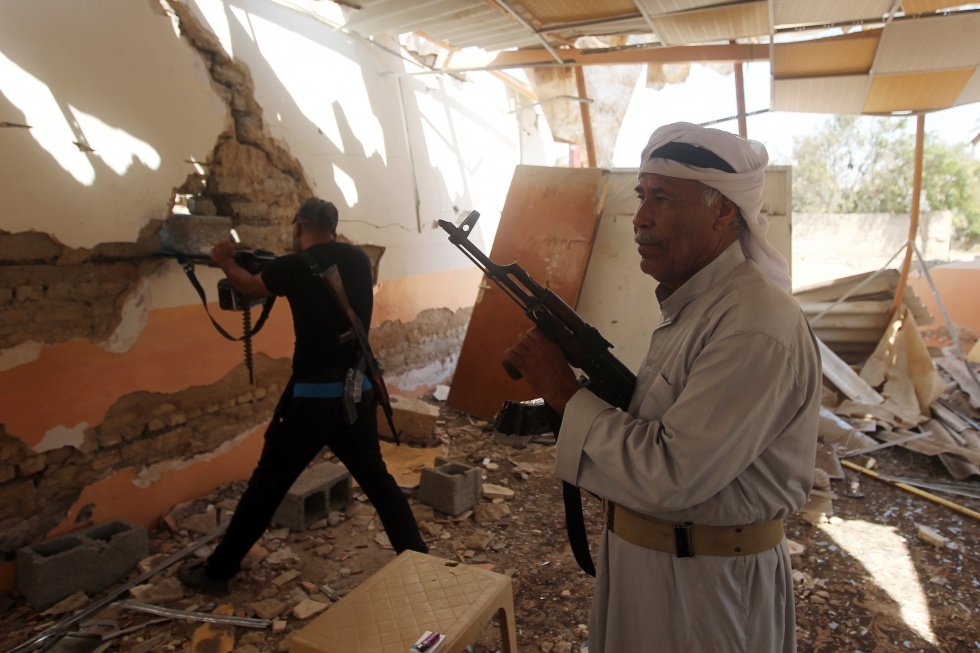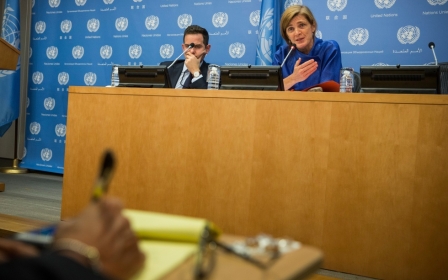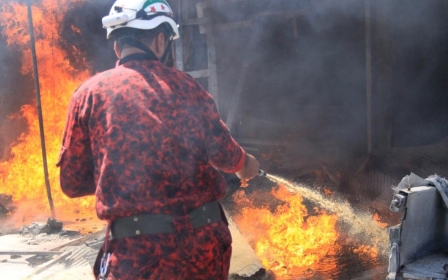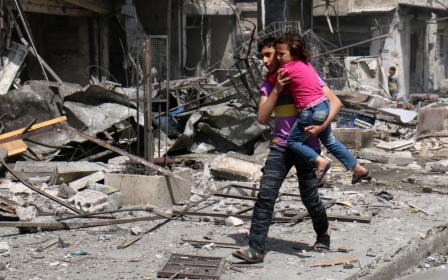Iraq claims IS militants used chlorine gas

At least 300 people have been killed in a chlorine gas attack in the region of Saqlawiyah, north of Fallujah, according to a senior figure in the Iraqi government.
Ali al-Badri, an MP in the Islamic Dawa party said, at a press conference, that “the terrorist organization ISIS (Islamic State) used chlorine gas for the first time in the region of Saqlawiyah after trapping more than 400 troops, resulting in the deaths of many of them due to suffocation while the terrorist gangs detonated car bombs within the brigade headquarters.”
“We hold the full responsibility for the fate of the trapped soldiers to the Commanding General of the Armed Forces, Haider al-Abadi, and the security leaders, especially the Anbar Operations Chief, Lt. Gen. Rashid Flaih, because of the slow measures taken by the Air Force despite frequent appeals for rapid procedures to rescue the soldiers since several days ago.”
He described the deaths as “the second Speicher Massacre” referring to the earlier slaughter of 1,700 Iraqi Air Force cadets by IS in June at Camp Speicher in Tikrit.
Saqlawiyah has been under siege by IS since last week when the troops in the town ran out of ammunition.
Rumours that both pro-Assad and anti-Assad forces have used chlorine gas and other chemical weapons in Syria are widespread.
On September 16 it was reported that at least 14 members of IS were killed when a rocket – whose warhead they had been loading with chlorine gas – had exploded.
Meanwhile, US Secretary of State John Kerry has said that a recently released report alleging that the Syrian government was responsible for attacks in which chlorine was used as a weapon raises “serious questions” about Syria’s compliance with international obligations.
The Organization for the Prohibition of Chemical Weapons (OPCW) said in its latest report on September 10 that its team had collected “compelling evidence” that the toxic chemical was used “systematically and repeatedly” in three villages in northern Syria - Talmanes, Al Tamanah and Kafr Zet.
“The OPCW report raises serious questions about the Syrian regime’s compliance with its obligations under the Chemical Weapons Convention and UN Security Council Resolution 2118 as well as its willingness to continue using chemical weapons to kill or injure the people of Syria,” Kerry said in a statement on Sunday.
The watchdog’s report also “raises especially troubling concerns that continued chemical attacks on the Syrian people by the regime could occur,” Kerry said. “The Assad regime must know that it will be held to account for such use in the international community.”
Middle East Eye propose une couverture et une analyse indépendantes et incomparables du Moyen-Orient, de l’Afrique du Nord et d’autres régions du monde. Pour en savoir plus sur la reprise de ce contenu et les frais qui s’appliquent, veuillez remplir ce formulaire [en anglais]. Pour en savoir plus sur MEE, cliquez ici [en anglais].




